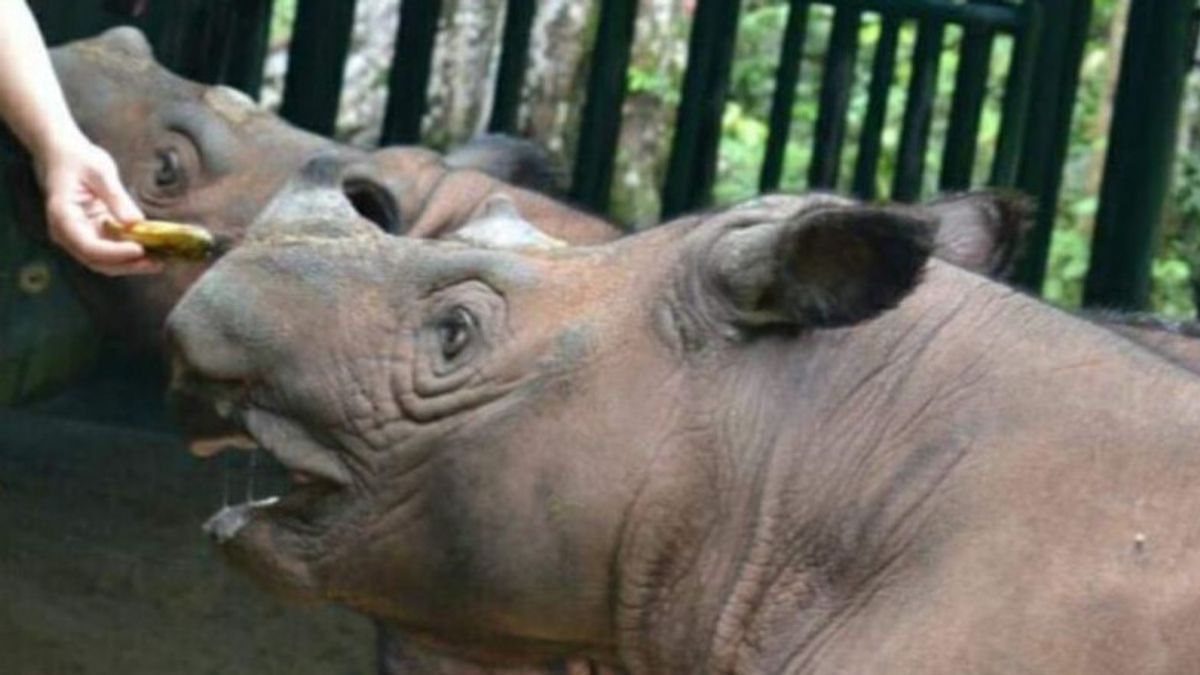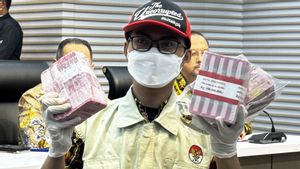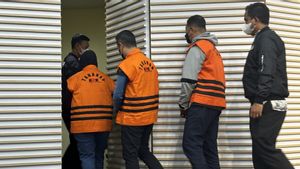JAKARTA - The Sumatran Rhino (Dicerorhinus sumatrensis), named Rosa, gave birth to a female at the Way Kambas National Park (TNWK) Sumatran Rhinoceros Captive Center.
A press release from the Ministry of Environment and Forestry (KLHK) broadcast by the TNWK Hall was received in East Lampung, Monday, stating that the Sumatran rhino calf was born on Thursday (24/3), at 11.44 WIB.
Director General of Natural Resources and Ecosystem Conservation (KSDAE) KLHK Wiratno said this rhino calf was the result of the marriage of a male rhino named Andatu and a female rhino named Rosa.
The birth of Rosa's calf has increased the number of rhinos in SRS TNWK to eight.
In addition to the Rosa rhinoceros, other rhinos currently occupying the TNWK SRS are Bina (female), Ratu (female), Andalas (male), Harapan (male), Andatu (male), and Delilah (female).
"The birth of the Sumatran rhino is good news amid the efforts of the Indonesian government and partners to increase the Sumatran rhino population," he said as quoted by Antara.
Wiratno expressed his gratitude for the work of the team of veterinarians and nurses who have continuously monitored the development of rhino Rosa's pregnancy to postpartum care.
Based on the information from the Head of the SRS TNWK Veterinary Team, drh. Zulfi Arsan, Rosa showed signs of giving birth at around 09.00 WIB. The birth process takes almost three hours until the baby rhino is born.
The entire process of giving birth as well as the health of the mother and child after birth is supervised by a team of SRS TNWK veterinarians from the Indonesian Badak Foundation (YABI), including drh. Ni Made Ferawati, drh. Aprilia Widyawati, and drh. Vidi Saputra, under the coordination of drh. Zulfi Arsan.
In assisting Rosa's delivery to postpartum care, the team of veterinarians was assisted by animal nurses consisting of Sugiyanto, Soca Adi Fatoni, and Lamijo.
The team of veterinarians consisting of drh. Dedi Candra from the Directorate General of KSDAE KLHK, drh. Diah Esti Anggraini from the Gajah Balai TNWK Hospital and drh. Bongot Huaso Mulia from Taman Safari Indonesia was also involved in Rosa's labor alert and postpartum care team.
Support from the international community was also obtained by the presence of drh. Scott Citino from White Oak Conservation and senior animal nurse Paul Reinhart from Cincinnati Zoo, United States of America to assist the SRS TNWK team of veterinarians, if needed, such as at the birth of Andatu and Delilah.
IPB University School of Veterinary and Biomedical Reproductive Expert, Dr. drh. Muhammad Agil, MSc.Agr was also involved in supporting the maternity alert measures.
Based on the statement of Drh. Zulfi Arsan, during her pregnancy, the rhino Rosa received additional fetal-boosting hormones until the time of delivery. Pregnancy health checks are also carried out routinely using Ultrasonography (USG), in addition to providing good and sufficient feed, as well as monitoring behavior to support pregnancy.
Head of TNWK Center Kuswandono explained that six years ago, SRS TNWK became the birthplace of Delilah, the younger sister of Andatu. Previously, Andatu was born at SRS TNWK on June 23, 2012. The Andatu rhino is the first Sumatran rhino in Asia to be born in captivity 124 years since the birth of the last Sumatran rhino calf at the Calcutta Zoo, India.
Andatu was born from the marriage of a male Andalas rhinoceros and Queen's mother. The Andatu rhino has successfully married the Rosa rhinoceros and is successful in getting pregnant, indicating the TNWK SRS program has succeeded in producing offspring of the Sumatran rhino.
“The Sumatran Rhino Sanctuary, Way Kambas National Park is the only place for the Sumatran rhino to breed naturally with the support of technology and collaboration of expertise, both from within and outside the country. The TNWK SRS, which was inaugurated in 1998, is a collaborative program between the KLHK TNWK Center and YABI to produce as many young Sumatran rhinos as possible, according to safe conditions to maintain the survival of the Sumatran rhino species which is now threatened with extinction," he said.
The English, Chinese, Japanese, Arabic, and French versions are automatically generated by the AI. So there may still be inaccuracies in translating, please always see Indonesian as our main language. (system supported by DigitalSiber.id)









